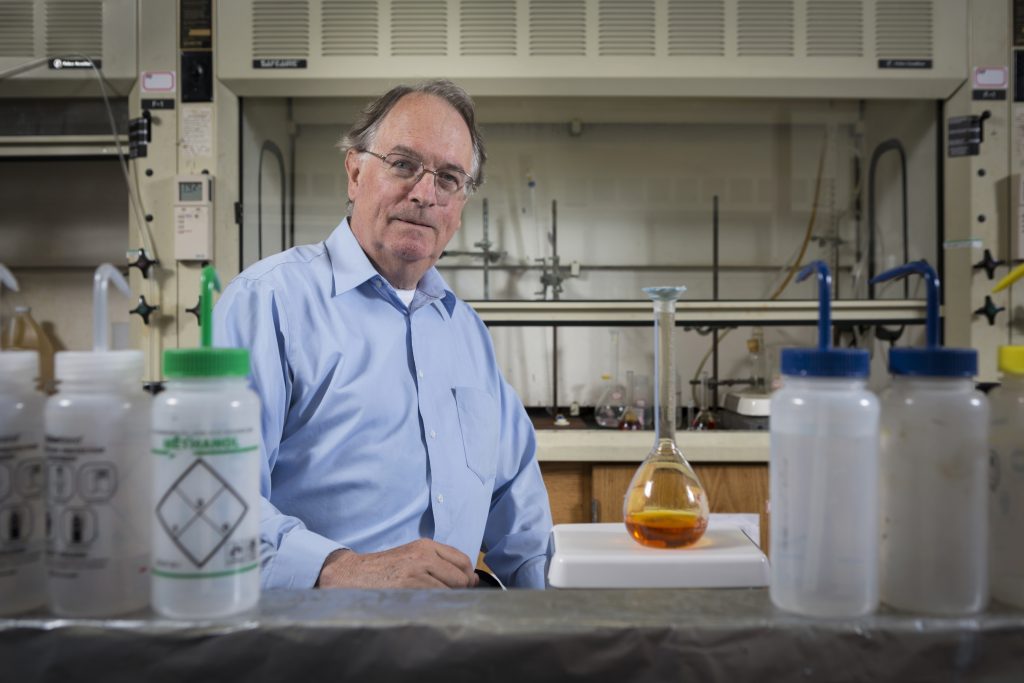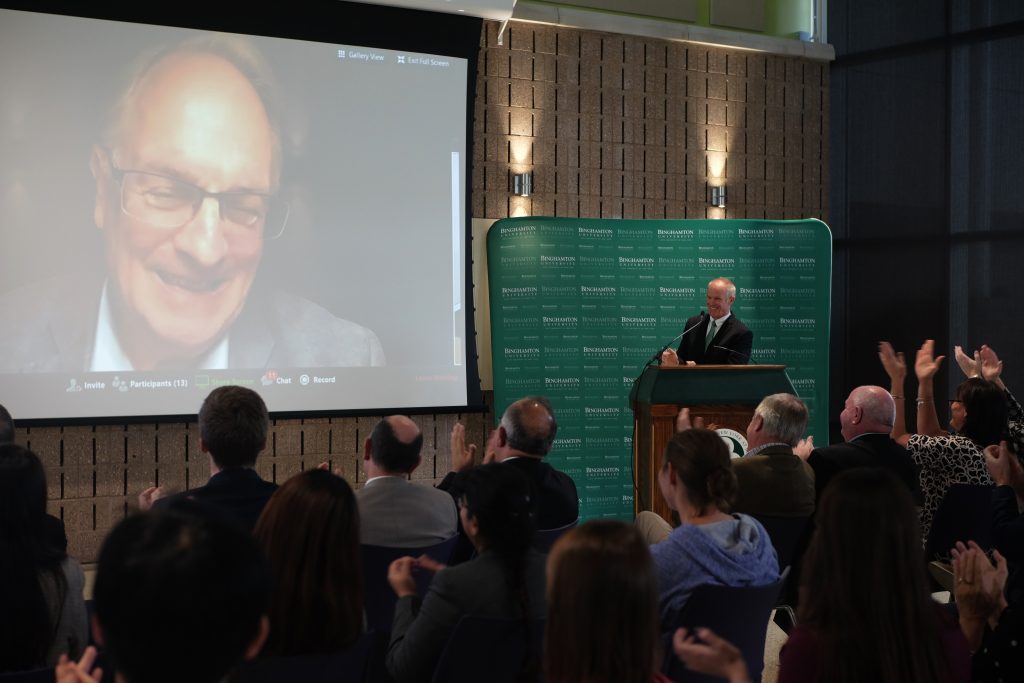
M. Stanley Whittingham’s colleagues and friends raised a champagne toast to him on Wednesday afternoon as they celebrated the announcement of his 2019 Nobel Prize win.
On Wednesday morning, Whittingham was in Germany for a meeting when the organizer told him that people from the Nobel Prize committee were trying to get hold of him.
“Some of us, or some of the community thought this might happen five or some years ago,” Whittingham said at a press conference. “And it mostly had [dotted off] our radar screen until I think about 11:15 [a.m.] this morning.”
The distinguished professor of chemistry and materials science and engineering was awarded this year’s Nobel Prize in Chemistry, along with Akira Yoshino and John B. Goodenough, for his involvement with the invention of the lithium-ion battery. The development of the rechargeable batteries, which are commonly used in laptops, cell phones and electric cars, was revolutionary in advancing portable technology.
Whittingham’s résumé includes a bachelor’s, master’s and doctorate degree from Oxford University, more than 200 research publications and 16 patents, as well as working 16 years at ExxonMobil Research & Engineering Company and 31 years at BU. While discussing the experience of receiving the award, he acknowledged that there is a larger community working together to solve the same problem.
“This is recognition for three of us, but it is also recognition for the entire field,” Whittingham said. “We bring great indivisibility to raise [the bar] on energy storage and I think it will pass along the message that we can have a cleaner and nicer world and, perhaps, start to solve the climate problem.”
Since Whittingham was in Germany during the press conference, Binghamton University President Harvey Stenger, Donald Nieman, executive vice president for academic affairs and provost at BU and around 100 attendees communicated with him via a livestream chat at the Innovative Technologies Complex. Stenger opened the event with an appreciative speech dotted with humor.
“I had the opportunity this morning to brag about [Whittingham] in front of a group of people I was meeting with, one of them was a Syracuse University alum[nus],” Stenger said. “And I said, ‘Hm, one of our faculty members won the Nobel Prize today, and you know what? That’s even better than winning the NCAA Basketball Championship.’”
The Nobel Prize in Chemistry has been awarded to 110 people since 1901, but this prize marks the first awarded to a faculty member at BU.
As a former dean of Harpur College, Nieman has had an extended relationship working with Whittingham. Nieman followed Stenger’s introduction by talking not only about Whittingham’s professional accomplishments, but also his personal qualities.
“Stan is a great scientist, but beyond that he is a wonderful human being,” Nieman said. “He is unassuming, he is a wonderful colleague and collaborator and one of the things that will not show up on the accolades that are written about Stan for winning the Nobel Prize is all the work he does with undergraduate students.”
After the press conference, Stenger made the connection between Whittingham’s work with lithium-ion batteries and BU’s new $1.75 million materials research equipment, the HAXPES-Lab, which was acquired by Louis Piper, director of the Institute for Materials Research and an associate professor of physics. Stenger said that looking to the future, there is hope for another award just around the corner.
“Professor Piper is right behind him,” Stenger said. “He is going to be using [the HAXPES-Lab] aspects to analyze the battery components in ways no one else has ever done.”
Whittingham ended his virtual conversation with life advice for students pursuing ambitious goals.
“Take risks, don’t be conservative and only do those things you really want to do,” Whittingham said. “Take a job that is exciting. You love it — don’t do it for the money.”



